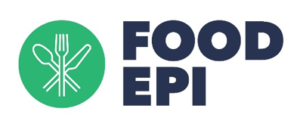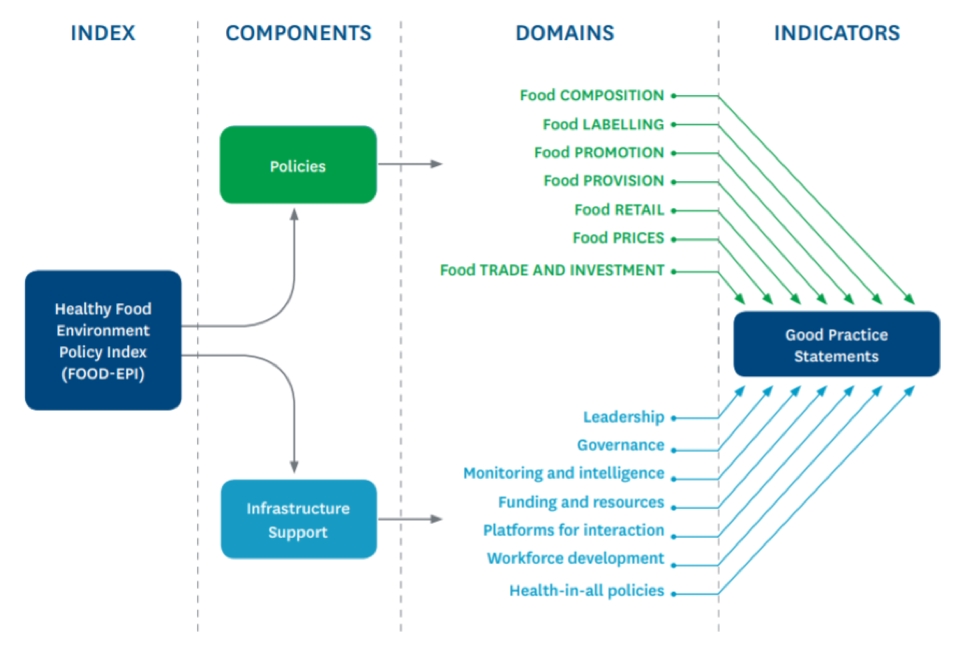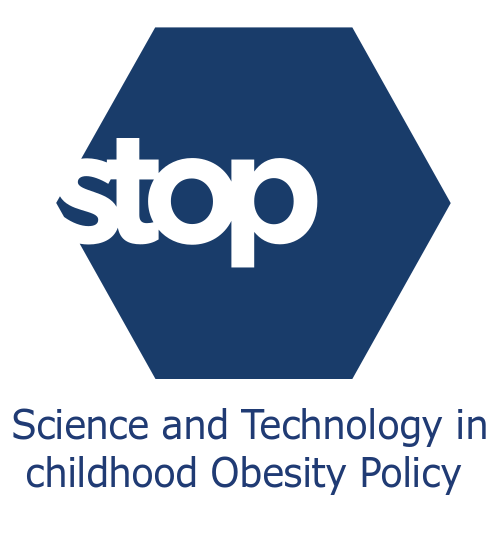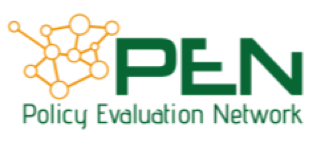Effective government policies are essential to increase the healthiness of food environments and to reduce obesity, chronic diseases and their related inequalities.

Food environments are defined as the collective physical, economic, policy and socio-cultural surroundings, opportunities and conditions that influence people’s food and beverage choices and nutritional status. Unhealthy food environments lead to unhealthy diets and excess energy intake which have consequences in levels of morbidity and mortality. It is critical that Governments implement preventive policies and actions to match the magnitude of the burden that unhealthy diets are creating. Monitoring the level of implementation of the policies and actions recommended by the World Health Organization (WHO) is an important part of ensuring progress towards better nutritional health. The International Network for Food and Obesity/NCDs Research, Monitoring and Action Support (INFORMAS) developed a Healthy Food Environment Policy Index (Food‐EPI) in 2013 to assess the extent of implementation of recommended food environment policies by national governments compared with international best practices and to derive concrete priority actions to fill implementation gaps identified. In the meantime the Food-EPI has been implemented in about 15 countries internationally.
The research team
The Healthy Food Environment Policy Index (Food-EPI) process in Europe is conducted by researchers within the Horizon 2020 Science and Technology in Childhood Obesity Prevention (STOP) project and the Joint Programming Initiatives Policy Evaluation Network. The implementation of the Food-EPI in Europe is supported by INFORMAS (International Network for Food and Obesity/NCDs Research, Monitoring and Action Support), a global network of public-interest organisations and researchers that seeks to monitor and benchmark public and private sector actions to create healthy food environments and reduce obesity and non-communicable diseases (NCDs) globally. INFORMAS is coordinated by the University of Auckland.
The tool
The Healthy Food Environment Policy Index (Food‐EPI) includes two components (“policies” and “infrastructure support”), 13 domains and 47 good practice indicators. The Food-EPI has been developed based on recommendations from high‐level reports on improving population nutrition and consultations with international food policy experts. Good practice indicators will be tailored for the purposes of this project to the European context as the different levels of jurisdictions for different policy domains (i.e. national, European) need to be taken into account.

The process
The Food‐EPI process at the country level involves the rating by national expert panels, including public health and nutrition experts, and representatives from nongovernmental organizations (NGOs) and medical associations, of the extent of implementation of food environment policies by their governments compared with international best practices. Experts' ratings are informed by comprehensive evidence of implementation for each indicator, verified by government officials and international best practice exemplars (benchmarks). Based on implementation gaps identified, experts propose concrete actions for implementation by their government and prioritize those according to importance and achievability criteria.
-
Step one
Analyse content
-
Step two
Collect relevant documents
-
Step three
Evidence-ground the policies and actions
-
Step four
Validate evidence with government officials
-
Step five
Rate government policies and actions
-
Step six
Identify and prioritize concrete actions
-
Step seven
Qualify, comment and recommend
-
Step eight
Translate results for government and stakeholders
Countries
| Country | Key contacts | Institution | Project link | |
| Ireland | Janas Harrington | University College Cork | j.harrington@ucc.ie | PEN |
| Poland | Joanna Zukowska | Gdansk University of Technology | joanna.zukowska@wilis.pg.gda.pl | PEN |
| Germany | Peter Von Philipsborn | Ludwig Maximilians Universität | pphilipsborn@ibe.med.uni-muenchen.de | PEN |
| The Netherlands | Maartje Poelman | University of Utrecht | M.P.Poelman@uu.nl | PEN |
| Norway | Liv Elin Torheim | Oslo Metropolitan University | livtor@oslomet.no | PEN |
| Slovenia | Mojca Gabrijelcic Ingrid Sotlar | National Institute of Public Health | Mojca.Gabrijelcic@nijz.si Ingrid.Sotlar@nijz.si | STOP |
| Italy | Marco Silano Drieda Zace | Istituto Superiore di Sanità | marco.silano@iss.it drieda_zace@hotmail.com | STOP |
| Spain | Marc Saez | Universitat de Girona, Spain | pep.tur@uib.es | STOP |
| Estonia | Eha Nurk Anu Aspollu | National Institute for Health Development | eha.nurk@tai.ee anu.aaspollu@tai.ee | STOP |
| Portugal | Miguel Arriaga Andreia Silva Benvinda dos Santos Maria João Gregório Rita Horgan Nicole Chaves | miguelarriaga@dgs.min-saude.pt andreiasilva@dgs.min-saude.pt benvindasantos@dgs.min-saude.pt mariajoaobg@dgs.min-saude.pt ritahorgan@dgs.min-saude.pt nicole@dgs.min-saude.pt | STOP | |
| Finland | Tiina Laatikainen Päivi Mäki | National Institute for Health and Welfare | tiina.laatikainen@thl.fi paivi.maki@thl.fi | STOP |
| INFORMAS Food-EPI international module leader | Dr Stefanie Vandevijvere | University of Auckland Scientific Institute of Public Health Brussels | s.vandevijvere@auckland.ac.nz Stefanie.vandevijvere@sciensano.be | STOP PEN INFORMAS |
 News from STOP
News from STOP
- Policy makers and public health organisations called to engage with Food EPI recommendations December 7, 2022In the past decades, the number of people living with overweight, obesity, and diet related non-communicable diseases (NCDs) has risen. This increase has been associated with widening exposure to obesogenic food environments in Europe and […]
- Health-GPS: A microsimulation tool by Alijadallah Belabess December 7, 2022Non-communicable diseases (NCDs) are responsible for 74% of deaths worldwide. They have a tremendous impact on people’s mental and physical well-being whilst also having an economic impact through losses in productivity and unemployment. There has […]
- STOP Final Conference: What next in childhood obesity research for policy? December 7, 2022Over the last four-and-a-half years, the STOP project has been undertaking research on the determinants of childhood obesity and the policies and interventions that are necessary to address its rising prevalence across Europe. STOP partners […]
- STOP at ICO 2022 October 31, 2022As the STOP project draws to an end, the project took advantage of the International Congress on Obesity (ICO 2022) to showcase the state-of-the-art findings and tools that have come out of the project. In […]
- Key obesity, nutrition, and physical activity stakeholders gather in Slovenia for final STOP Stakeholder meeting October 24, 2022Over the last 4 years, the STOP project has been undertaking research on the determinants of childhood obesity and the policies and interventions that are necessary to address the rising prevalence of childhood obesity. Throughout […]
- Preventing Obesity across Europe: A call to action October 13, 2022STOP, in collaboration with three other European projects – CO-CREATE, PEN and Joint Action BestReMap – is calling on the EU and national governments to commit to new policies and research investment to help prevent […]
- STOP and WHO launch their toolkit to guide and shape health-driven policymaking June 16, 2022Starting today, policy makers may access new tools to help them direct and prioritize policy options in addressing childhood obesity and improving health across Europe. The STOP Project and the World Health Organization (WHO) have […]
- World Obesity Day 2022: Everybody Needs to Act to address the root causes of childhood obesity March 2, 2022Obesity in children has been a cause of concern for decades, but with the effects of the pandemic exacerbating the issue, it has now become a serious public health crisis. The STOP Project, 24 organisations, […]
- Assessing food companies’ commitments and practices on food environments and population nutrition in France February 24, 2022We have long been aware of the link between food environments and risk of overweight and obesity, something which has been exacerbated in recent months by COVID-19. By 2030, obesity is expected to affect over […]
- An interview with Professor Mojca Gabrijelčič Blenkuš November 16, 2021In a recent interview, we talked with Prof Mojca Gabrijelčič Blenkuš, a medical doctor and public health specialist. Prof Gabrijelčič is a member of the STOP consortium and coordinator of the Joint Action Best Practices […]







